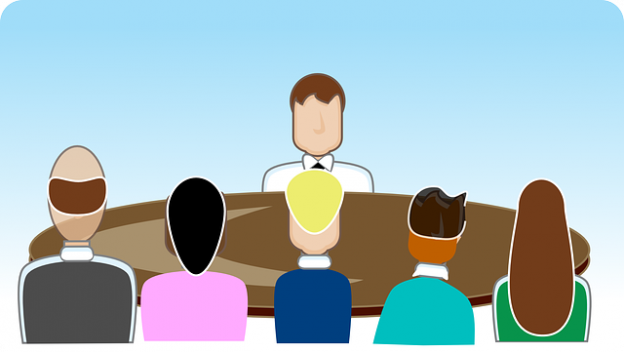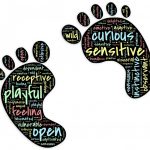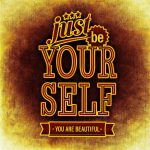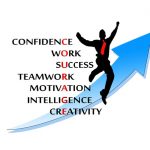The job interview is a critical aspect of obtaining employment, and it can be nerve-wracking for even the most experienced professionals. The pressure to present oneself in an optimal light while simultaneously demonstrating their qualifications and expertise can cause anxiety levels to soar.
However, with careful preparation and focused attention, individuals can boost their confidence in job interviews.
Confidence is key during the interview process as it conveys a sense of self-assurance and competence to potential employers. Studies have shown that candidates who display confidence are more likely to land job offers than those who come across as hesitant or unsure.
Therefore, it is essential to develop strategies for enhancing one’s confidence before facing an interviewer. In this article, we will explore various methods for boosting your confidence in job interviews so you can present yourself as the best candidate for the position at hand.
Understanding The Importance Of Confidence In Job Interviews
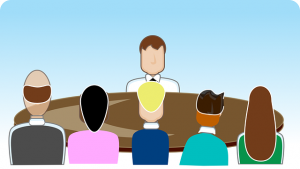 Confidence is a crucial factor that can make or break your chances of success during a job interview. It plays an essential role in influencing how you present yourself, interact with others, and communicate effectively during the interview process. Therefore, it is vital to understand the importance of confidence and learn ways to boost it before heading into any job interview.
Confidence is a crucial factor that can make or break your chances of success during a job interview. It plays an essential role in influencing how you present yourself, interact with others, and communicate effectively during the interview process. Therefore, it is vital to understand the importance of confidence and learn ways to boost it before heading into any job interview.
One way to enhance your confidence levels is by practicing power poses. Power posing involves standing tall with your shoulders back, head held high, and feet shoulder-width apart for at least two minutes. This technique has been proven to increase testosterone levels, decrease cortisol (stress hormone) levels, and improve overall feelings of confidence and well-being.
By incorporating this practice regularly before attending interviews, you may feel more empowered and grounded while answering questions. Another effective method is through mindset techniques. When preparing for an interview, you must adopt a positive attitude towards the entire process.
Visualize yourself succeeding in the interview by imagining yourself confidently interacting with the interviewer(s), presenting your skills and qualifications clearly and concisely. You could also recite affirmations such as ‘I am confident in my abilities,’ which helps reinforce self-belief and reduces anxiety.
Overall, understanding why confidence matters during job interviews can help you prepare better for them. Practicing power poses and adopting positive attitudes through mindset techniques are just some ways to boost your confidence levels before attending interviews.
By employing these strategies consistently over time, you’ll find that increased self-confidence leads to improved performance in all aspects of life – including successful job interviews! Moving forward we will delve into specific steps one needs to take when preparing for an interview that enhances their level of preparedness further.
Preparing For The Interview
Securing a job interview is an opportunity that should not be taken lightly. It can determine the trajectory of your career and have significant implications on your financial stability. Therefore, it is crucial to prepare yourself thoroughly before stepping into the room with potential employers.
To effectively prepare for an interview, you must conduct extensive research about the company and its operations. This includes investigating their mission statement, values, products or services offered, and organizational structure. Additionally, researching the company culture will enable you to tailor your responses during interviews in a way that aligns with their core beliefs.
Role-playing exercises are also effective tools for building confidence and preparing for tough questions. By simulating various scenarios likely to arise during an interview, you can practice thinking critically on your feet while improving communication skills.
Five tips to help you prepare:
– Research extensively about the company
– Understand what type of candidate they’re looking for
– Study common interview questions
– Identify any gaps in your experience or qualifications
– Practice role-playing exercises
In summary, successful job interviews require thorough preparation beforehand. Understanding what companies expect from candidates allows you to effectively communicate how your skills match their needs.
Conducting research and practicing role-play exercises are essential steps towards boosting confidence levels ahead of a job interview. In the next section, we’ll explore ways of practicing common interview questions which play a critical role in securing employment opportunities.
Practicing Common Interview Questions
One of the most effective ways to boost your confidence in a job interview is by practicing common interview questions. Role playing practice with a friend or family member can help you become more comfortable with answering questions and presenting yourself in a professional manner. It allows you to receive feedback on your responses, body language, and tone of voice.
In addition to role-playing practice, researching company culture can also give you an edge during an interview. By understanding the values and goals of the company, you can tailor your answers to align with their mission statement. This shows that you have taken the time to research the company and are genuinely interested in working for them.
To prepare for commonly asked interview questions, it’s important to do your research beforehand. Look up sample questions online or ask people who work in similar roles about their experiences. This will allow you to come up with thoughtful answers and avoid being caught off guard during the actual interview.
Overall, practicing common interview questions through role-playing and doing thorough research on the company can significantly improve your chances of success in a job interview. By taking these steps seriously and putting in effort ahead of time, you’ll be able to enter any interview feeling confident and prepared for whatever comes your way.
As you continue preparing for your upcoming job interviews, it’s important not only to focus on what you say but how you present yourself as well. Dressing professionally sends a message that you take this opportunity seriously and respect both yourself and the interviewer’s time. Therefore, dressing appropriately should be given careful consideration before entering into any job interviews.
Dressing For Success
First impressions matter, and what you wear to a job interview can make or break your chances of getting hired. Your appearance is the first thing that an interviewer will notice about you, so it’s essential to dress appropriately. Dressing professionally not only shows respect for the company and the position but also boosts your confidence during the interview process.
When choosing what to wear, color coordination is key. Neutral colors such as black, grey, navy blue, and white are always safe choices; they convey professionalism and sophistication without being too flashy. However, adding pops of color through accessories like ties or scarves can show off your personality while still remaining professional.
Appropriate accessories can also enhance your look. For women, tasteful jewelry such as stud earrings or a simple necklace adds elegance without distracting from your outfit or appearance. Men should ensure their shoes are polished with no scuffs or scratches visible. A watch is another accessory that conveys punctuality and attention to detail.
Remember that dressing for success doesn’t mean breaking the bank on expensive clothing items – it’s more about how well put together you look overall. Take care in ironing out any wrinkles in your clothes before going into an interview because looking neat goes a long way.
In today’s competitive job market, every little detail counts when trying to land a new role. Dressing for success sets a positive tone right from the start of the interview process and helps boost your confidence levels throughout it all.
Body Language And Non-Verbal Communication
Dressing for success is an important aspect of preparing for a job interview. However, it’s not the only factor that can boost your confidence during an interview. Body language and non-verbal communication also play a crucial role in how you present yourself to potential employers.
Mirroring techniques are one way to establish rapport with your interviewer through body language. This technique involves subtly mirroring their movements, such as leaning forward or crossing your legs when they do so. Mirroring creates a sense of familiarity and trust between two people, which can help build a positive connection during the interview process.
Another powerful tool is using power poses before the interview. Research has shown that adopting expansive postures, like standing with arms raised above your head, can increase feelings of power and confidence. Taking just a few minutes to strike a power pose in private before heading into the interview room can have a significant impact on how you come across to your interviewer.
It’s worth noting that while these techniques may be helpful in boosting confidence levels, they aren’t foolproof solutions for overcoming nervousness and anxiety during interviews.
Building strong self-confidence takes time and effort; practicing mock interviews, rehearsing answers to common questions, and seeking feedback from friends and family members are all valuable strategies for feeling more comfortable in high-pressure situations.
Transition: Even if you feel confident about dressing professionally and presenting yourself well through body language, nerves can still get in the way when it comes time to actually speak with potential employers. In order to truly excel at job interviews, it’s essential to learn how to manage those anxious feelings effectively.
Overcoming Nervousness And Anxiety
Job interviews are often stressful, which can lead to nervousness and anxiety in candidates. However, excessive tension can negatively impact job performance and diminish the chances of landing the position. Therefore, it is critical for interviewees to learn how to control their nerves and remain calm throughout the process.
One effective way to reduce anxiety before an interview is by practicing breathing exercises. Deep breathing techniques have been proven to lower heart rate, decrease blood pressure, and promote relaxation.
Sit comfortably with your back straight and take a deep breath through your nose, filling your lungs with air until they expand fully. Hold your breath for a few seconds before slowly exhaling through your mouth. Repeat this exercise several times, focusing on inhaling positive energy and releasing negative thoughts.
Another useful technique that helps overcome nervousness during an interview is visualization. Before attending the interview, visualize yourself confidently answering questions while maintaining eye contact with the interviewer. Imagine feeling relaxed and confident as you talk about your skills and experiences.
When practiced regularly, visualization boosts self-esteem levels and reduces stress. Implementing these techniques won’t eliminate all feelings of nervousness; however, it will give job seekers a sense of control over their emotions. By taking steps to manage pre-interview jitters using breathing exercises or visualization techniques will help them feel more comfortable throughout the process thereby increasing their chance of success.
While implementing these strategies may help soothe anxious feelings prior to an interview, staying positive and confident throughout the conversation itself plays a crucial role in making a good impression on potential employers.
Staying Positive And Confident Throughout The Interview Process
Overcoming nervousness and anxiety is an essential step in boosting your confidence in a job interview. However, staying positive and confident throughout the interview process is equally important to make a lasting impression on the interviewer.
Visualizing success can be a powerful tool to help you stay calm during the interview. Visualization involves imagining yourself succeeding in the interview by answering questions confidently, building rapport with the interviewer, and eventually getting hired for the position. This technique helps reduce stress levels and instills a sense of self-assurance. Moreover, it prepares you mentally for any challenging situation that may arise during the interview.
Another effective way to boost your confidence is by practicing power poses before entering the interview room. Power poses are body postures that convey dominance, authority and confidence. Research shows that assuming such positions for just two minutes can increase testosterone levels (the hormone associated with assertiveness) and decrease cortisol levels (the hormone associated with stress). Some examples of power poses include standing tall with hands on hips or arms raised above your head like a triumphant athlete.
To further enhance your confidence level during an interview, consider incorporating these tips:
1. Prepare well: Thoroughly research about the company and prepare answers to common questions beforehand.
2. Dress appropriately: Choose professional attire that makes you feel comfortable yet confident.
3. Arrive early: Reach at least 15-20 minutes ahead of time so you have ample time to compose yourself.
4. Speak clearly: Articulate your thoughts coherently without rushing or mumbling.
By following these tips along with visualizing success and using power poses, you can ace your next job interview with confidence and poise. Remember, every small effort counts towards building up your self-esteem which will come across as attractive qualities to potential employers!
Frequently Asked Questions
How Can I Handle A Question That I Don’t Know The Answer To During A Job Interview?
Handling a question that you don’t know the answer to during a job interview can be challenging, but it is not an uncommon scenario. The key to tackling such questions lies in practicing and preparing beforehand.
It is essential to research about the company, its industry, and the role before appearing for the interview. This will help you understand what kind of questions may arise during the interview and prepare accordingly. Practice answering common behavioral and technical questions with someone else or by yourself to feel confident about your responses.
During the actual interview, take a moment to gather your thoughts when faced with an unfamiliar question, and try to relate it back to something you do know or have experience with. Remember that honesty is always appreciated over giving false information or trying to bluff through an answer.
By being adequately prepared and practicing regularly, you can handle unknown questions calmly and confidently during a job interview.
### What Is The Best Way To Follow Up After A Job Interview To Show My Continued Interest In The Position?
Following up after a job interview is essential in demonstrating continued interest in the position.
A ‘thank you’ email sent within 24 hours of the interview expresses gratitude for the interviewer’s time and reaffirms your enthusiasm for the role.
When making a phone call, it’s important to observe proper etiquette by introducing yourself and asking if it’s an appropriate time to speak.
It’s also advisable to mention something memorable from the interview to jog their memory and show that you were attentive during the conversation.
The follow-up process can be nerve-wracking, but it’s crucial in maintaining a positive impression with prospective employers.
As a career counselor, I strongly encourage candidates to take advantage of this opportunity to make themselves stand out as proactive and committed professionals.
Should I Disclose Any Personal Information About Myself During A Job Interview?
When it comes to job interviews, candidates may wonder whether or not they should disclose personal information about themselves. While building rapport with the interviewer can be beneficial, it is important to balance professionalism and personal information in a way that does not detract from one’s qualifications for the position.
Ways to build rapport without divulging too much personal information include finding common ground on professional topics such as industry trends or company culture, using active listening skills, and demonstrating enthusiasm for the role and organization.
Ultimately, the decision of what personal information to share during a job interview should be based on how relevant it is to the position and how comfortable the candidate feels discussing it in a professional setting. As a career counselor, I advise my clients to approach this topic thoughtfully and strategically, keeping in mind both their own boundaries and the expectations of potential employers.
How Can I Show My Enthusiasm For The Job Without Appearing Desperate?
To convey enthusiasm without appearing desperate during a job interview, it is essential to pay attention to both body language and tone of voice.
To demonstrate eagerness nonverbally, maintain good eye contact, sit up straight with shoulders relaxed, and avoid crossing arms or legs. Additionally, using gestures such as nodding and smiling can help show interest in the conversation.
When speaking, use an upbeat tone while avoiding sounding overly eager or pushy. It is important to strike a balance between expressing excitement about the opportunity while remaining professional and composed throughout the interview process.
### What Are Some Common Mistakes That Applicants Make During Job Interviews That I Should Avoid?
To increase the chances of a successful job interview, applicants must be mindful of common mistakes that may negatively affect their performance.
One such mistake is poor body language, which can convey disinterest or discomfort to the interviewer.
Appropriate attire should also be considered as it reflects professionalism and respect for the company’s culture.
Preparation is key in avoiding another error – being unable to answer questions regarding the position or company.
Honesty is highly valued by employers; hence, fabricating answers about one’s qualifications or experience might lead to unfavorable consequences.
By avoiding these pitfalls, job seekers can present themselves confidently and professionally during interviews.
Conclusion
Handling a difficult question during a job interview can be daunting, but it is important to stay calm and composed. Instead of pretending to know the answer, ask for clarification or offer your thought process as you work through the problem.
Follow up after the interview with a thank-you note that emphasizes your continued interest in the position and reiterates why you are an ideal candidate.
While it may be tempting to disclose personal information about yourself during an interview, it is best to focus on professional experiences and qualifications. Showing enthusiasm for the job is crucial, but be sure not to appear desperate by being overly eager or pushy.
Finally, avoid common mistakes such as arriving late, dressing inappropriately, or failing to research the company beforehand.
It is essential that candidates approach job interviews with confidence and preparedness. By following these tips, applicants can boost their chances of success while showcasing their skills and experience effectively.
Remember – every interview provides valuable learning opportunities regardless of whether or not you receive the position; use this chance to gain insight into what employers seek in top-performing candidates.
